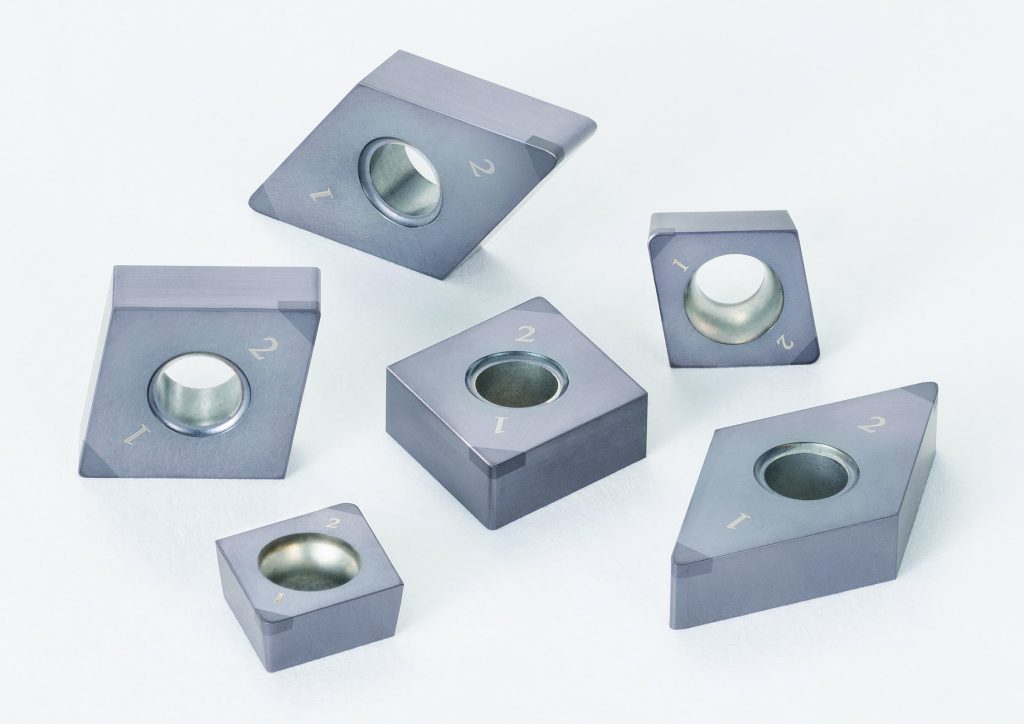KBN020 CBN Grade
KBN020 CBN Grade
KBN020 excels as a 1st choice, general purpose CBN grade with a broad application range from continuous to heavily interrupted machining. Utilizing innovative new layering techniques, Kyocera has developed the MEGACOAT TOUGH coating technology. This coating combines a highly wear-resistant layer on the surface adhered to high-content CBN which is used to toughen up the edge for greater fracture resistance when encountering interruptions.

When turning steel above 45 Rc, it is advantageous to choose a CBN insert grade that can stand up to multiple hard turning operations and produce the finish, stability, and tool life needed to power through a variety of parts. Turning parts that have sections of continuous surfaces mixed with interruptions like automotive suspension, shafts, or gears requires repeatable tooling options that perform well in different situations. To give manufacturers a larger range of hard turning capabilities, Kyocera is introducing the brand new KBN020 high-performing CBN grade.
Kyocera's KBN020 excels as a 1st choice, general purpose CBN grade with a broad application range from continuous to heavily interrupted machining. Utilizing innovative new layering techniques, Kyocera has developed the MEGACOAT TOUGH coating technology. This coating combines a highly wear-resistant layer on the surface adhered to high-content CBN which is used to toughen up the edge for greater fracture resistance when encountering interruptions. The adhesion layer is laminated between the wear-resistance layer and the CBN to reduce layer peeling for longer tool life and stable machining. Providing both excellent wear resistance and fracture resistance gives the user more flexibility, range, performance, and tool life when turning hardened materials.
To take full advantage of Kyocera's new hard turning technology, it is important to follow the listed speed and feed recommendations to make the most out of your tool life and surface finish.
Benefits:
- Combining new coating technology with high-content CBN provides exceptional wear and fracture resistance
- KBN020 supports a wide range of hardened applications from continuous to heavily interrupted machining
- Extended lineup of cutting edge preparations for various applications
- Excellent surface finish
Features:
- Full lineup of negative and positive insert geometries
- Variety of edge preps available
- MEGACOAT TOUGH coating technology for extended tool life
- Multiple cutting edges per insert
- Improved adhesion between CBN and high wear resistance layer
Applications:
- Recommended for hardened materials (55 HRc or more)
- External and internal turning, facing, boring





